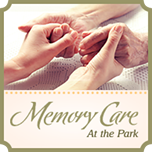As with many other progressive diseases and conditions, dementia is classified into phases or stages. Despite the fact that dementia affects each senior in a unique way, a generalized pattern of decline has been identified and staged according to severity.
Understanding the different stages can help seniors and their loved ones prepare for the coming affects of dementia. The stages also help families plan for the increased level of care that will be needed in the future.
The Stage Scale of Dementia
Most physicians divide dementia into seven-stages, a process known as the Reisberg Scale. Let’s take a look at all seven stages:
Stage 1: No Cognitive Impairment
While the presence of no cognitive impairment would seem to indicate solid mental health, the scenario finds itself on the lowest dementia stage. Seniors show no symptoms of dementia, memory loss, behavioral problems or other changes associated with dementia.
Stage 2: Very Mild Cognitive Decline
Loved one or medical providers may not even notice mild impairments among seniors. During this stage, older adults tend to forget things like where they laid the car keys or the last couple digits of a telephone number. Though mild cognitive decline is not actually dementia, it does precede a worsening of the memory.
Stage 3: Mild Cognitive Decline
When memory and cognitive problems happen frequently and become noticeable to loved ones, mild cognitive impairment (MCI) is suspected. Though MCI does not generally have a major impact on daily functioning, some common signs include:
- An inability to work on detailed work projects
- Increased forgetfulness
- The repetition of certain words or phrases
- Poor organization skills
- Declining problem solving skills
- Driving in an unsafe manner
Stage 4: Moderate Cognitive Decline
Mental impairment is undeniable and indicates the coming of early-stage dementia. Seniors will often socially withdrawal or display wild mood swings.
Stage 5: Moderately Severe Cognitive Decline
From stage 5 onward, seniors are no longer able to perform daily tasks without assistance. Seniors usually need help dressing, preparing meals, or bathing during stage five.
Stage 6: Severe Cognitive Decline
Stage 6 is reached when seniors are no longer able to care for themselves. Around the clock care becomes necessary at this point, while seniors experience personality changes, anxiety, advanced memory loss, and an inability to recognize loved ones.
Stage 7: Very Severe Cognitive Decline
Seniors in this stage suffer from an inability to communicate and advanced motor impairment. They may be unable to speak, walk or even smile on their own.
As difficult as it is to know what’s coming, family members and other loved ones are encouraged to study the seven stages of dementia. This can help prepare everyone for future treatment needs.











